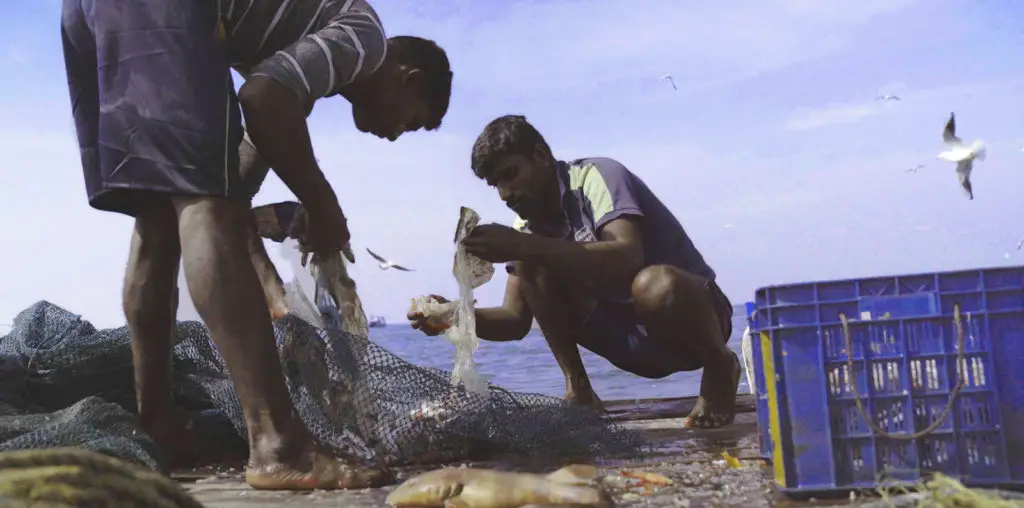
Check out Jeremy’s previous reports as he braves the Cannes Film Festival 2004>>>
Talk about cutting it close. Wong Kar-wai’s inability to finish his film 12 hours earlier than he did has delayed or canceled two screenings—worth a total of about 6,000 seats—that were scheduled for Thursday in the Grand Theatre Lumiere. The final reel of his long-awaited new film, “2046,” arrived in Paris for subtitling at 5:00 a.m. the morning of the screenings, the first of which should have been at 8:30 a.m. The only screening remaining is the evening one, which is still delayed 30 minutes.
Wong is known as an undisciplined perfectionist, as his last film, In the Mood for Love was unfinished and billed as a “work in progress” when it played at the festival. He will continue to tinker with “2046” after the festival as well. Even for Wong, this tardiness is unprecedented and has caused some commotion among the many festival attendees who had been eagerly awaiting the film’s debut. The press, like everyone else, didn’t get to see the film until Thursday night, and most won’t be able to write about it until Friday. Olivier Assayas’s “Clean,” set to play Friday, took the early morning press screening’s time slot.
Using a more observant and calm technique than in his last film, Demonlover, Assayas creates a story of lost lost fame and recovery from addiction. Maggie Cheung propels the film with an excellent performance as Emily, the heroine-addicted wife of a once-great rock-and-roll star. The press sees her as a Courtney Love-like destructive force on the star, and when he overdoses and dies, she’s seen as a murderer. After serving time for possession, she tries to turn her life around so that she can see her son, Jay (James Dennis). Nick Nolte plays Jay’s grandfather in a performance that balances a sympathetic attitude and desire to forgive with the knowledge the challenges and dangers that a recovering addict encounters.
Emily was a veejay in the early days of cable on an MTV-like channel, and is remembered only for that and her famous husband. Her options now are either to try to create her own music career or enter a conventional life.
Cheung’s performance isn’t like the forced, “recognize-my-bravery” acting that usually accompanies films about recovering addicts. Emily has to deal with the challenges of her own addiction and understandable doubt from the people around her. She accepts her plight with courage instead of whining.
One of the most visually interesting films of the festival is also one of the most perplexing. I can’t very well describe the plot of “Innocence” because I don’t really understand it after one viewing. The anime film is a meditation on existence in a future where machines play a key role in society and prolong people’s lives in electric bodies.
Mamoru Oshii’s film is a return to the themes and some of the characters from the acclaimed animator’s cult favorite, “The Ghost in the Shell.” Two special officers are investigating robots that went berserk and killed their owners in acts of suicide. All the cases have been settled out of court, but the officers’ organization finds it suspicious. The robot company must be engaged in some form of misconduct.
The film is overstuffed with philosophical nonsense that’s even more difficult to understand in the Cannes setting—reading the English translation under the screen while keeping an eye on the breathtaking visuals. However, I am quite sure that on a second viewing there will still be too much dialogue about ghosts, souls and the degree to which humans are machines and machines are human.
The triumph of Oshii’s work is in the computer-generated 3-D settings in which the traditional 2-D characters live. While there’s sometimes a disorienting marriage between the two techniques, a lot of deliberate work went into the atmospheric lighting and spooky design of the machines and buildings of a run-down future.
Another film’s message was much clearer when it reached its didactic conclusion. “The Motorcycle Diaries,” which premiered at Sundance, received a very positive reception here as well, with some people considering it a contender for an award. Like many of the films, it contains a political edge as director Walter Salles (“Central Station”) holds true to Che Guevara’s communistic insights as he saw the world outside of his wealthy upbringing.
The film is indeed moving in its portrayal of a young doctor-in-training and his slightly older friend from Argentina who venture to ride through all of South America. With Gael Garcia Bernal’s strong performance grounding the film, Salles paints a portrait of a pointlessly split continent and a need for human compassion.
However, like most of the films in competition, “The Motorcycle Diaries” is imperfect. It’s overly episodic and imperfect in its political message because it ignores later history. This year’s festival is marked by an abundance of good films yet few great films in competition. Several Un Certain Regard films like Ousmane Sembene’s “Moolaadé,” Nimród Antal’s “Kontroll” or Shona Auerbach’s “Dear Frankie” should have been in competition and are much more impressive than some of the other Palm d’Or contenders. Even last year’s much despised lineup had its favorites. Then again, this has been written before seeing “2046.”
Stay tuned for more Cannes Film Festival 2004 coverage Until then, let’s have some Back Talk>>>
